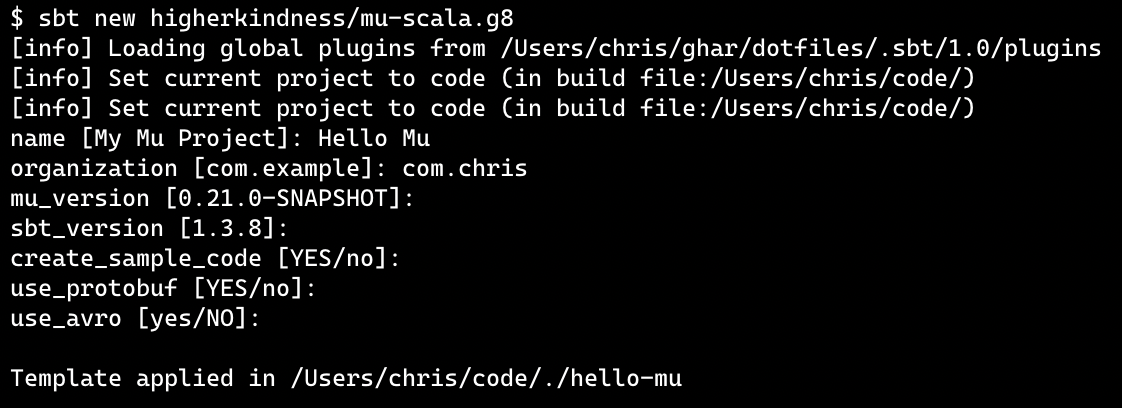Getting Started
The easiest way to get started is to use our giter8 template to start a new project:
sbt new higherkindness/mu-scala.g8
You can customise the template using a few parameters:
The template will generate an sbt project with 3 modules:
- the protocol module, for generating source code from Avro/Protobuf IDL files
- the server module, for a gRPC server
- the client module, for a gRPC client
Template parameters
There are a few important parameters to note.
create_sample_code
If you set the create_sample_code parameter to yes (the default value), the
project will include sample code demonstrating how to build a gRPC server and
client with Mu:
- the
protocolmodule will contain a “hello world” Avro/Protobuf IDL file - the
clientmodule will contain a working implementation of a gRPC client - the
servermodule will contain a working implementation of a gRPC server, as well as a unit test
If you set create_sample_code to no, the three modules will still be
created, but they will be empty.
use_protobuf and use_avro
You should set exactly one of these to yes, and the other to no.
Depending on these parameters, the example IDL file created in the protocol
module will be either a .proto or a .avdl file.
Try it out
If you chose to create sample code, you can see everything working:
- Start the server with
sbt server/run - In another terminal window, run the client with
sbt client/runand enter your name when prompted
You should see something like this:
You can also run the unit test with sbt server/test.
Next steps
Learn more about Mu-Scala concepts by following a tutorial.
The RPC service definition with Protobuf tutorial, or RPC service definition with Avro if you prefer Avro, is a good place to start.

